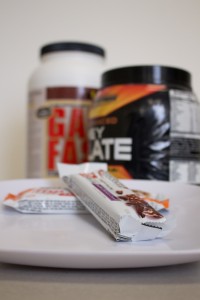
Researchers from Harvard Medical School and the National Institute for Public Health and the Environment announced that an amphetamine-like chamical has been found in the the pre-workout supplement Craze.
The chemical is not listed on the ingredient label put out by the company.
According to ABC news, the U.S government and the Food and Drug Administration do not treat these supplements as drugs, and so at this point it is not clear what will happen as a result of these findings.
Craze is a popular pre-workout performance fuel that claims to be the “ultimate in pre-workout power.”
Brian Felshaw, an exercise science major from Washington who has been learning about and using protein supplements, said pre-workout supplements are products used to get warmed up for a workout.
“They generally do three things,” Felshaw said. “They increase your heart rate, make your blood vessels bigger, and some even make adrenaline.”
Pre-workout supplements have not been around as long as protein supplements have, according to Felshaw.
“It’s new, it has a lot of chemicals, and they don’t always know what the effects are going to be,” Felshaw said. “But they’re not steroids by any means. They’re not dangerous. But I guess they finally found one with bad stuff in it.”
Researchers said because no one has thoroughly studied the supplement, there is no way to know exactly what the effects on the human body will be.
Phil Allsen, Ed.D., of the College of Life Sciences, advises to never use a supplement with so many unknown effects.
“This product says it is going to increase my workout capability and help the human body,” Allsen said. “Wouldn’t you think there should be some objective research that shows how it’s going to help the human body? There isn’t any.”
Allsen said any supplement that will actually be helpful to a workout should not have negative consequences.
“Whenever I use a supplement I have to know how much, when to take it and how long to take it,” Allsen said. “If I can’t answer those three questions, then I run the risk of negative outcomes.”
Students who want to know which supplements won’t have any negative outcomes will have to do some research before taking them. Cory Pettit, a neuroscience major from Nevada, found that doing sufficient research makes a difference in finding good supplements.
“I think a lot of supplements are totally bogus, but there are a few that actually make a difference,” Pettit said. “The way I decide to take a supplement is all based on studies that have been done. Anecdotal evidence or someone claiming it worked for them isn’t really evidence; you need double-blind controlled experiments.”
With the right precautions and sufficient research, supplements can be a guaranteed safe addition to exercising.




